Major Updates
- Congressional Members Request Information from Department on OPM Revenue Sharing
Following previous congressional outreach on the matter, a new letter to Secretary Cardona from Senators Murray, Warren, Smith, and House members Scott and DeLauro as been issued. It highlighted again the increased pressure from congress since the Government Accountability Office (GAO) earlier this year issued a report on the “incentive compensation ban” as well as the “bundled services exception” relating to third party servicers working with institutions. The higher education community and UPCEA are awaiting a new Dear Colleague letter or further clarification from the Department on these matters after the suggestions issued in the GAO report. Read the letter from congressional members to Secretary Cardona. - Department of Veterans Affairs Delays New Enrollment Management System for GI Benefits Implementation to Mid-March
Following outreach from UPCEA among many other organizations and institutions to the Department of Veterans Affairs’ (VA) regarding its’ plans to transition to a new enrollment management system for certifying GI bill benefits in January 2023, the VA has decided to delay the implementation from mid-January 2023 to the early March 2023 timeframe. As a result of the postponement, institutions will be able to submit enrollment certifications during the peak Spring semester enrollment period using the current VA-ONCE system. Read more. - NC-SARA to Open Policy Modifications for Public Comment – Submission Deadline February 3, 2023
The National Council for State Authorization Reciprocity Agreements (NC-SARA) the body which coordinates reciprocity for state authorization between more than 2,200 institutions in 49 member states, Washington, DC, Puerto Rico, and the US Virgin Islands, recently approved a process for policy modification, which will open January 3, 2023 and allow for one month of comments, through February 3. The schedule NC-SARA outlines that there will be two public forums, for those who submitted comments for the initial proposal deadline, to allow for parties to make their case for their proposed modifications. The changes would then go to a vote before NC-SARA’s board in the fall, with proposed changes and the revised SARA Policy Manual published in December of 2023. SARA recently held a webinar on the changes, and the slides and recording can be found here for more details. To take part in the SARA Policy Modification process, stay tuned to this page on the NC-SARA site.
Other News
- Biden administration extends student loan payment freeze as courts weigh debt relief (Washington Post)
- Congress on track for largest increase to maximum Pell Grant award in more than a decade (The Hill)
- US Department of Education names the Federal education assistance funds that proprietary institutions of higher education must include as Federal revenue in 90/10 calculation (US Dept of Education)
- New State Privacy Laws to Go into Effect in 2023 (Reuters)
For 2022, many saw and felt it to be a year of uncertainty. It was the first real full-year of return to campus-based operations after the start of the COVID pandemic, with most staff and students going back to in-person work and learning. However, like many industries, higher education retirements increased and given inflationary factors, job hopping and career changes also occurred. With a less predictable economy, some students opted to leave higher education. College leaders were faced with new financial pressures with fewer students. The UPCEA community prepared and was poised to support the other areas of the institution during the pandemic, based on their expertise in distance education, and serving the needs of a wide range of learners.
UPCEA’s Center for Research and Strategy was hard at work in 2022 to meet the needs of our members and provide a lens for how to best engage with students and advance the work of units and institutions. Along with our own research, corporate partners sponsored many UPCEA research efforts, anticipating the community’s need to migrate new waters regarding portfolio relevancy, shifting consumer preferences toward education, changing employer needs centered around a more educated and trained workforce, and the increase of bootcamps and other alternatives to a college degree. In case you missed it, presenting the best of 2022 UPCEA research:
- UPCEA Snap Polls – snap polls were an important tool to gather data and distribute real-time updates with our members through the pandemic and immediately after. These polls were often member-driven where one institution had an issue where many members could benefit. Some of the topics included quality of alternative credential programming, targeting alumni for education, portfolio readiness and other topics. The results of all can be found in the 2022 Snap Poll Results folder of the UPCEA CORe library.
- We engaged chief online learning officers’ (COLOs) to find their decision-making factors when considering online program managers in our collaboration with University of Louisville in our report In-House or Outsource?. We found that many COLOs turned to OPMs for marketing and recruiting, while far fewer sought academic and student support services. Read more and access the report.
- UPCEA and StraighterLine partnered to develop a survey that identified students’ lived experiences and perceptions regarding transferring institutions. When asked what the most important factor is when making the decision to transfer, 42% said tuition or cost of the degree, 26% said the number of credits that transfer, and 11% said the speed at which they could complete their degree. Read more and access the report.
- We took part in the 2022 State of Continuing Education whitepaper in partnership with Modern Campus. This study showed an anticipated greater dependency on continuing education units by their campuses, and 56% of respondents said the role of continuing education has expanded through the COVID-19 pandemic. Read more and access the report.
- In partnership with InsideTrack, UPCEA was able to interview over a thousand employers on the value of colleges and universities toward the future training and education. Our findings showed that 88% of respondents strongly agree (42%) or agree (46%) that their organization has the desire to create relevant programs for employees in partnership with institutions of higher education. Read more and access the report.
- While much of the focus was on adults reskilling or the emergence of young Millennials or Generation Z, Mindedge sponsored research on the mature adult to identify what their education needs are. Among different credentials and course offerings, mature adults have the greatest interest in short courses or modules (84% interested or extremely interested), followed by a single-day seminar (78%), and professional certifications (58%). Read more and access the report.
- In partnership with Blackboard (now part of Anthology), UPCEA also conducted research on both the impact of alternative credentials in a transformed economy and the impact of COVID-19 on the educational decision making process. Flexibility and convenience are no longer a luxury but rather a requirement for many higher education programs. Respondents to the UPCEA/Blackboard study indicated that they were most often interested in a fully online delivery format (64%). Our impact of COVID report also found that of respondents that were extremely interested in personal advancement, 44% said they were much more likely to consider continuing their education, additional training, or additional skills, as a result of the pandemic. Read more and access the reports.
- Automation and efficient processes are going to become more important as we engage the future adult learner. UPCEA and Salesforce surveyed over 500 students and interviewed a dozen educational leaders to better understand student needs and expectations and identify the role that automation plays in the engagement process. One of the key findings included opportunities for institutions to better personalize communications and adapt to learners across different ages. The younger learner has different preferences than what current systems are designed for. Staff members echoed these sentiments and felt institutional systems limited customizable or personalized approaches. Read more and access the report.
- Non-degree credentials are uniquely positioned to increase and diversify revenue streams, attract new and retain existing audiences, increase collaboration and partnerships with employers, and improve employment outcomes for students we found in our recent report with Coursera. These credentials are seen as complementary offerings to traditional academic curricula that have a number of associated benefits and challenges. Ninety-one percent of respondents said their institution currently offers non-degree credentials, which are seen as an important part of higher education in the near future (95% strongly agree or agree). Read more and access the report.
- We also collaborated on a report on the perceptions of third-party providers as a result of the pandemic alongside ed2go. We found that 65% of institutions’ professional and continuing education units used third-party providers. When asked what the single most important factor is in considering third-party providers for their PCO unit, reliability/quality and ability to collaborate toward institution needs were cited by 28% of respondents and 13% said ease of use. Read more and access the report.
We hope you dive into these reports and find value in our outcomes and research! Here’s to a new year and new data!
WASHINGTON, December 15, 2022 – UPCEA, the Washington, D.C.-based association for college and university leaders in professional, continuing, and online education, is pleased to announce the election of new officers and new directors to serve on the UPCEA Board of Directors. Elected in November, these individuals will assume their roles at the conclusion of the 2023 UPCEA Annual Conference in Washington, D.C. on March 24, 2023.
“It is my pleasure to welcome these exemplary individuals to their leadership roles on behalf of the Governance and Nominations Committee and all of UPCEA,” said David Cillay, Chancellor, Global Campus and Vice President, Academic Outreach and Innovation at Washington State University; 2022-2023 UPCEA President-Elect, and Chair, UPCEA Governance and Nominations Committee. “I look forward to working and serving alongside these strong and qualified leaders during their terms. I know that our new officers and directors will have a significant positive impact on both the association and our field.”
“UPCEA’s mission is vitally important to the future of higher education,” said Bob Hansen, UPCEA CEO. “Whether it is leadership in online learning or the rise of alternative credentials, the field needs a Board that is nimble, visionary, and strategic. These new officers and directors bring those attributes to the work of building a truly consequential Board.”
UPCEA welcomes two officers, two committee chairs, and seven Directors At-Large to the 2023-2024 Board of Directors:
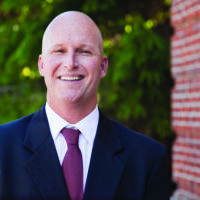 David Cillay, Ph.D., Chancellor, Global Campus and Vice President, Academic Outreach and Innovation (AOI) at Washington State University, will serve as Board President for a one-year term (2023-2024). Dr. Cillay’s unit is responsible for Identifying, implementing, and sustaining new and innovative access options that expand the reach of Washington State University, support faculty and students in the use of academic technology, and ensure a high-quality educational experience for all students who access WSU through technology. He oversees WSU’s Global Campus, Learn365, Professional Education, and Learning Innovations.
David Cillay, Ph.D., Chancellor, Global Campus and Vice President, Academic Outreach and Innovation (AOI) at Washington State University, will serve as Board President for a one-year term (2023-2024). Dr. Cillay’s unit is responsible for Identifying, implementing, and sustaining new and innovative access options that expand the reach of Washington State University, support faculty and students in the use of academic technology, and ensure a high-quality educational experience for all students who access WSU through technology. He oversees WSU’s Global Campus, Learn365, Professional Education, and Learning Innovations.
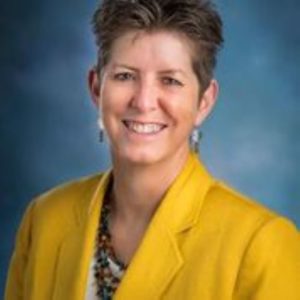
Kim Siegenthaler, Ph.D., Associate Vice Chancellor for Academic Strategy and Operations at City University of New York (CUNY) will serve as Board President-Elect for a one-year term (2023-2024) and then ascend to the role of Board President (2024-2025). Dr. Siegenthaler has led online education infrastructure development and expansion at Baptist Theological Seminary at Richmond, University of Missouri, Georgia State University and now at the City University of New York where she is responsible for expanding the online education portfolio system-wide. A passionate advocate for increasing higher education opportunities, she practices a strategic and collaborative approach that results in clear plans of action and widespread buy-in on initiatives. She leads institutional efforts to create a sustainable and scalable online education model that supports CUNY’s 25 campuses in their efforts to sustain and expand their online course and program portfolios.
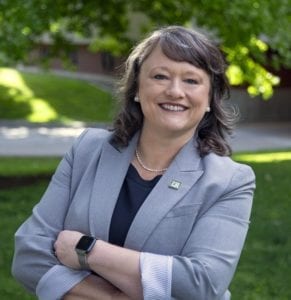
Jenni Murphy, Ed.D., Dean, College of Continuing Education at California State University, Sacramento will serve as the Regional Cabinet Chair for a two-year term (2023-2025). Dr. Murphy spent the past 21 years at Sacramento State. She applies her professional background, personal characteristics, and academic training to build and implement strategies that move organizations forward. Dr. Murphy’s research focuses on state and institutional policies impacting the shortage of postsecondary completions and degree attainment in California. In addition to her role as dean, she also serves as the founder of ProjectAttain!—a regional initiative and non-profit organization working to close the talent deficit by boosting adult credentialing and educational attainment, particularly for minority and under-invested populations.
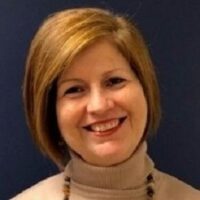
Militza “Mili” Maldonado Agusty, M.A., PHR, Executive Director, School of Professional Studies at Universidad del Sagrado Corazón will serve as a Diversity and Inclusive Excellence Committee Co-Chair for a two-year term (2023-2025). Ms. Maldonado has a MA in International Relations and Latin American Studies from American University; a BA in French from Catawba College in NC; and is PHR (Professional Human Resources) certified. She completed several certificate programs including the Overview of Professional, Continuing and Online Education from UPCEA and received UPCEA’s Emerging Professional, Continuing and Online Education Leader Award in 2020. Ms. Maldonado has worked overseas with international agencies like USAID-Nicaragua and Kazakhstan, Academy for Educational Development-Nicaragua, US Embassy-Nicaragua and speaks several languages (Spanish, English, French, and Portuguese).
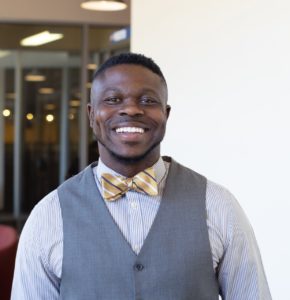 Ms. Maldonado joins Jasmeial “Jazz” Jackson, Ed.D., Chief Student Success, Equity and Inclusion Officer at Thomas Edison State University who is in the second year of his two year term (2022-2024) as Diversity and Inclusive Excellence Committee Co-Chair.
Ms. Maldonado joins Jasmeial “Jazz” Jackson, Ed.D., Chief Student Success, Equity and Inclusion Officer at Thomas Edison State University who is in the second year of his two year term (2022-2024) as Diversity and Inclusive Excellence Committee Co-Chair.
The following individuals will serve as at-large directors for two-year terms (2023-2025):
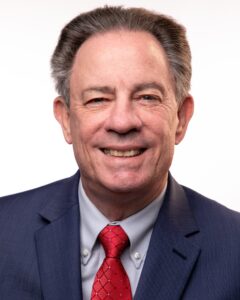
Christopher Guymon, ABD, Assistant Provost for Adult and Professional Education at Utah Tech and has been privileged to serve at two distinctive universities—The University of Chicago and Utah Tech University—and in these universities, he has served as an Assistant Provost, Interim Dean, and Senior Associate Dean and COO. During his tenure, he has led the development of several online degrees, significantly increased enrollment in degrees and certificate programs, developed strategic relationships in Europe, East Asia, and South Asia; and developed and executed a $2 million fundraising campaign to support students and faculty. Effective January 1, 2023, Guymon will become the Associate Provost for Academic Affairs at Utah Tech University.
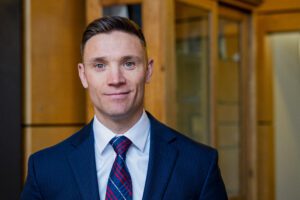 Paul Huckett, M.S., Assistant Dean, Learning and Innovation and lecturer with The Johns Hopkins Whiting School of Engineering. As Assistant Dean, Huckett is responsible for strategic leadership in teaching, learning, and technology across the school and leads curriculum and course development for new and existing online programs. He oversees the Center for Learning Design & Technology team that provides learning design and teaching support to faculty. As a lecturer, Huckett teaches the course “Strategic Communications in Technical Organizations” in the school’s Engineering Management program. He additionally developed and taught the Coursera MOOCs Inclusive Online Teaching and Excellence in Online Teaching
Paul Huckett, M.S., Assistant Dean, Learning and Innovation and lecturer with The Johns Hopkins Whiting School of Engineering. As Assistant Dean, Huckett is responsible for strategic leadership in teaching, learning, and technology across the school and leads curriculum and course development for new and existing online programs. He oversees the Center for Learning Design & Technology team that provides learning design and teaching support to faculty. As a lecturer, Huckett teaches the course “Strategic Communications in Technical Organizations” in the school’s Engineering Management program. He additionally developed and taught the Coursera MOOCs Inclusive Online Teaching and Excellence in Online Teaching
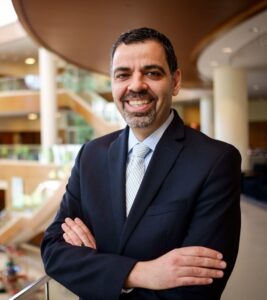
Charles Iacovou, Ph.D., Dean of School of Professional Studies, Vice Provost for Charlotte Programs, and a professor of management at Wake Forest University. He is responsible for the strategic leadership of the school and the development of innovative, accessible programs that focus on the educational needs of adult learners and organizational partners. Dr. Iacovou received his PhD degree in Management Information Systems from the University of British Columbia and his BSc degree in Business Administration from the University of Vermont.
 Heather McCullough, Ph.D., Director, Learning and Technology at the University of North Carolina System Office. In this role, she collaborates and liaises with the 17-campus system around online learning, faculty development, and learning technologies that support student success. Heather earned a Ph.D. in French Literature from Indiana University and an M.S. in Information Science from the University of North Carolina at Chapel Hill. She has taught French and English at the university level in the US and France. She has also taught Communication Studies and International Studies in the US.
Heather McCullough, Ph.D., Director, Learning and Technology at the University of North Carolina System Office. In this role, she collaborates and liaises with the 17-campus system around online learning, faculty development, and learning technologies that support student success. Heather earned a Ph.D. in French Literature from Indiana University and an M.S. in Information Science from the University of North Carolina at Chapel Hill. She has taught French and English at the university level in the US and France. She has also taught Communication Studies and International Studies in the US.
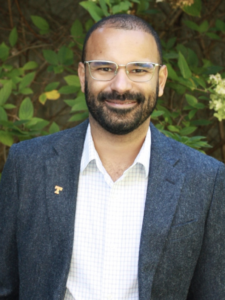 Josh Steele, M.A., Associate Vice Provost Online Learning & Academic Programs at University of Tennessee, Knoxville. Josh Steele joined the University of Tennessee, Knoxville in March 2021 to serve as the inaugural Assistant Vice Provost for Online Learning & Academic Programs. He has over 13 years of higher education experience, starting as an academic advisor, which inspired his drive to make higher education more accessible and inclusive for post-traditional students. He is particularly passionate about the role that public land-grant universities must play in developing online pathways to truly achieve their land-grant mission in the 21st century. He holds a BS in Psychology and an MA in History, both from the University of Arizona.
Josh Steele, M.A., Associate Vice Provost Online Learning & Academic Programs at University of Tennessee, Knoxville. Josh Steele joined the University of Tennessee, Knoxville in March 2021 to serve as the inaugural Assistant Vice Provost for Online Learning & Academic Programs. He has over 13 years of higher education experience, starting as an academic advisor, which inspired his drive to make higher education more accessible and inclusive for post-traditional students. He is particularly passionate about the role that public land-grant universities must play in developing online pathways to truly achieve their land-grant mission in the 21st century. He holds a BS in Psychology and an MA in History, both from the University of Arizona.
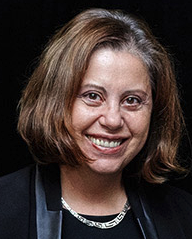 Tanya Zlateva, Ph.D., Dean, Boston University Metropolitan College. Tanya Zlateva is the Dean of Boston University’s Metropolitan College, which offers over one hundred degrees and certificates in multimodal delivery—evenings, hybrid, online. She spearheaded BU’s first cybersecurity programs, stackable certificates, and the online MS in computer information systems. As dean, she created an internal operation for marketing and recruiting, based on a novel student-centric framework that integrates admission and academic advice in a fast-moving economy. She implemented data-cognizant approaches for academic assessment, and to support flexibility in operational and strategic decision-making. She holds a Ph.D. in IT from the Dresden University of Technology and has published in peer-reviewed venues.
Tanya Zlateva, Ph.D., Dean, Boston University Metropolitan College. Tanya Zlateva is the Dean of Boston University’s Metropolitan College, which offers over one hundred degrees and certificates in multimodal delivery—evenings, hybrid, online. She spearheaded BU’s first cybersecurity programs, stackable certificates, and the online MS in computer information systems. As dean, she created an internal operation for marketing and recruiting, based on a novel student-centric framework that integrates admission and academic advice in a fast-moving economy. She implemented data-cognizant approaches for academic assessment, and to support flexibility in operational and strategic decision-making. She holds a Ph.D. in IT from the Dresden University of Technology and has published in peer-reviewed venues.
Additionally, UPCEA is pleased to announce the selection of two new members of the Diversity & Inclusive Excellence Committee and two new members of the Finance Committee. In their roles on these two Board-level committees, these individuals are undertaking critically important work for the association and the field.

McCeil Johnson, J.D., Vice President Accreditation and Regulatory Compliance, at the University of Phoenix joins the Diversity and Inclusive Excellence Committee as a member for a one-year term (2023-2024). Ms. Johnson’s core competencies reflect an amalgam of domain expertise acquired through 20 years of professional experience in compliance, diversity, and legal affairs. She prides herself on being a servant leader who enjoys helping others achieve their professional goals and ascend to new heights. Ms. Johnson pursued her quest for knowledge and scholarship at the University of Iowa, where she earned a BA, an MA, and JD from the University of Iowa College of Liberal Arts and College of Law, respectively.
 Fatimah Wirth, Ph.D., Instructional Designer, at Georgia Institute of Technology joins the Diversity and Inclusive Excellence Committee as a member for a one-year term (2023-2024). Dr. Wirth assisted in writing an almost $3 million NASA Cooperative Agreement Notice (CAN) that was awarded to Georgia Tech in early 2009. She worked on NASA Electronic Professional Development Network (ePDN) online courses and was instrumental in converting NASA ePDN to NASA Virtual University in the fifth year of the NASA CAN. Dr. Wirth has presented at a number of international conferences on elearning, written and published conference proceedings, books, journal articles, ebooks and a book chapter Dr. Wirth has also been active as a Georgia Tech Professional Education (GTPE) Staff Council member, AECT’s Justice, Equity, Diversity, and Inclusion Committee member and most recently GTPE’s DEI Committee Chair. Her research interests include collaborative online learning, mixed reality, and AI.
Fatimah Wirth, Ph.D., Instructional Designer, at Georgia Institute of Technology joins the Diversity and Inclusive Excellence Committee as a member for a one-year term (2023-2024). Dr. Wirth assisted in writing an almost $3 million NASA Cooperative Agreement Notice (CAN) that was awarded to Georgia Tech in early 2009. She worked on NASA Electronic Professional Development Network (ePDN) online courses and was instrumental in converting NASA ePDN to NASA Virtual University in the fifth year of the NASA CAN. Dr. Wirth has presented at a number of international conferences on elearning, written and published conference proceedings, books, journal articles, ebooks and a book chapter Dr. Wirth has also been active as a Georgia Tech Professional Education (GTPE) Staff Council member, AECT’s Justice, Equity, Diversity, and Inclusion Committee member and most recently GTPE’s DEI Committee Chair. Her research interests include collaborative online learning, mixed reality, and AI.
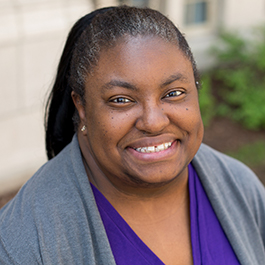 |
 |
Reba-Anna Lee, Ed.D., Assistant Dean of Distance Learning, School of Professional Studies at Northwestern University and Kevin Vaughn, Ph.D., Dean of University Extension and Professor of Anthropology at University of California, Riverside were asked to renew their one year (2022-2023) terms on the Diversity and Inclusive Excellence Committee. Their second and final terms on the committee will conclude in 2024.
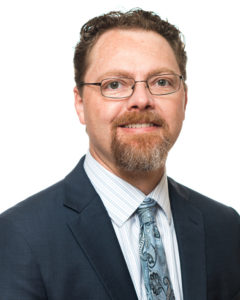 Patrick Wilson, Ed.D., Executive Director, Online & Extended Learning at New Mexico Highlands University joins the Finance Committee as a member for a one-year term (2023-2024). Dr. Patrick Wilson has served in a variety of roles throughout his 20+ year career in higher education. He is currently Director of Online and Extended Learning at New Mexico Highlands University (NMHU.) In this role he focuses on collaborating with faculty to expand educational programs online and at centers throughout New Mexico. Dr. Wilson earned his masters degree in Finance and Accounting at Regis University and his doctoral degree at Pepperdine University in Educational Technology.
Patrick Wilson, Ed.D., Executive Director, Online & Extended Learning at New Mexico Highlands University joins the Finance Committee as a member for a one-year term (2023-2024). Dr. Patrick Wilson has served in a variety of roles throughout his 20+ year career in higher education. He is currently Director of Online and Extended Learning at New Mexico Highlands University (NMHU.) In this role he focuses on collaborating with faculty to expand educational programs online and at centers throughout New Mexico. Dr. Wilson earned his masters degree in Finance and Accounting at Regis University and his doctoral degree at Pepperdine University in Educational Technology.
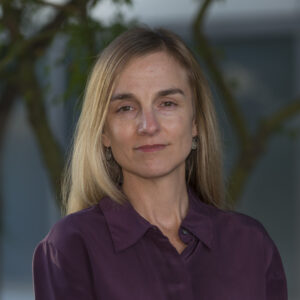 Jen Schwedler, Ed.D., Associate Dean Academic Affairs and Online Learning at University of California, Davis joins the Finance Committee as a member for a one-year term (2023-2024). Dr. Schwedler provides strategic direction to the team responsible for creating instructional experiences that support the delivery of high-quality online learning of credit and noncredit academic programs. She collaborates with faculty and academic leaders across the Division and the Campus on new programs, including selection of delivery channels, instructional design and technology, learner assessment and engagement, and faculty development. She holds a doctorate in Educational Leadership and Management from Drexel University. Before joining UC Davis, Dr. Schwedler served as associate vice president of Information Resources and Technology.
Jen Schwedler, Ed.D., Associate Dean Academic Affairs and Online Learning at University of California, Davis joins the Finance Committee as a member for a one-year term (2023-2024). Dr. Schwedler provides strategic direction to the team responsible for creating instructional experiences that support the delivery of high-quality online learning of credit and noncredit academic programs. She collaborates with faculty and academic leaders across the Division and the Campus on new programs, including selection of delivery channels, instructional design and technology, learner assessment and engagement, and faculty development. She holds a doctorate in Educational Leadership and Management from Drexel University. Before joining UC Davis, Dr. Schwedler served as associate vice president of Information Resources and Technology.
 |
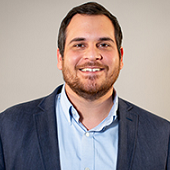 |
Diego Britto, M.B.A., Vice President of Finance at Purdue University Global and Aaron K. Sinkar, M.B.A., the Senior Financial and Administrative Officer for Extended Education Ventures at The University of Texas at Austin were asked to renew their one year (2022-2023) terms on the Finance Committee. Their second and final terms on the committee will conclude in 2024.
# # #
About UPCEA
UPCEA is the leading association for professional, continuing, and online education. For more than 100 years, UPCEA has served most of the leading public and private colleges and universities in North America. Founded in 1915, the association serves its members with innovative conferences and specialty seminars, research and benchmarking information, professional networking opportunities and timely publications. Based in Washington, D.C., UPCEA also builds greater awareness of the vital link between contemporary learners and public policy issues. Learn more at upcea.edu.
The future has arrived in continuing education, however many have yet to realize the arrival.
Released on November 30, ChatGPT and GPT-3.5 were publicly unveiled by OpenAI – a leader in generative artificial intelligence. I wondered what this release might mean for the future of continuing higher education. Of course, nothing had yet been written about the potential of this just-released version, so I asked ChatGPT to write a short poem about it. In just three seconds, far faster than I could have typed the words, the poem was complete on my screen:
In 2022, AI has come to play
A crucial role in education today
It helps us learn in new and novel ways
And opens up a world of endless possibilitiesWith AI by our side, we can go further
And learn more than we ever thought we could
It helps us to explore and discover
And to unlock the secrets of the worldGone are the days of rote memorization
Now, we can learn at our own pace
With AI as our guide, our education
Is more personalized and full of graceSo let us embrace this new technology
And let it lead us to a brighter future
Where education is always within reach
And knowledge is ours to discover.
Let’s deconstruct the poem and look closely at what ChatGPT has referenced.
AI has come to play a crucial role in education today; It helps us learn in new and novel ways. Yes! Because of AI, we are coming to offer new forms of pedagogy. Heutogogy will take great leaps forward. As PowerSchool captures the definition well, “Heutagogy, otherwise known as self-determined learning, is a student-centered instructional strategy. It emphasizes the development of autonomy, capacity, and capability. The goal of heutagogy? To teach lifelong learning.” That, of course, is at the core of continuing education. Our role in higher education shifts in the case of heutagogy, from codifying and providing knowledge to supporting the lifelong goals of learners to direct their own learning.
Clearly, as the poem puts it, this opens up a world of endless possibilities. With those possibilities come the challenges of how we, as educators, can best support and facilitate the “autonomy, capacity, and capability” of learners. These advancements, and those surely to come in the months and years ahead, will enable AI to serve as a viable learning assistant – providing research, new concepts, and stimulating creativity among the learner-user.
The second verse notes that AI enables us to explore and discover. And to unlock the secrets of the world. This certainly is true, because GPT continuously browses the internet to update and expand its knowledge base with new information, associations and creative solutions to pressing problems. Generative AI refers to unsupervised and semi-supervised machine learning algorithms that enable computers to use existing content like text, audio and video files, images, and even code to create new possible content.
The third verse triggers associations with key emerging advances. The end to days of rote memorization foreshadows the emergence of such technologies as Neuralink, the implant that is under development to link brains wirelessly to human computers providing a sort of embedded virtual memory. Owner of the company, Elon Musk, suggests that human trials are expected to come as early as 2023. This technology promises brain access to the internet as seamlessly as if it were part of the human memory. The third verse goes further, noting that now, we can learn at our own pace; With AI as our guide, our education; Is more personalized and full of grace. This is a clear reference to self-paced adaptive learning. In this approach, learners are already guided to mastery of learning objectives through computer-driven assessments that prescribe specific resources to overcome misunderstandings and incomplete learning in each module of the class. In this way learners are presented personalized, adaptive and customized paths to ensure optimal learning.
In the final verse, the poem suggests that in sum, this technology will lead us to a brighter future; Where education is always within reach: And knowledge is ours to discover. In this verse, we are told by ChatGPT that its underlying technology will enable universal access that will be in reach for the masses. This is a bright and attainable future for lifelong continuing learning.
OpenAI, in the 3.5 version, has also gone to significant effort to protect the system from providing harmful, hateful, violent and other unintended content to users:
ChatGPT also refuses to answer many potentially harmful questions (related to topics such as hate speech, violent content, or how to build a bomb) because the answers would go against its “programming and purpose.” OpenAI achieved this through both a special prompt it prepends to all input and by using a technique called Reinforcement Learning from Human Feedback (RLHF), which can fine-tune an AI model based on how humans rate its generated responses.
Of course, there are also hiccups and other biases that come with the current version which will need to be refined over time. However, the early response by academics who have tested ChatGPT is generally amazement at the speed, quality and depth of insight. Bloomberg assembled some early responses from a variety of early users, “A new chatbot created by artificial intelligence non-profit OpenAI Inc. has taken the internet by storm, as users speculated on its ability to replace everything from playwrights to college essays.” Responses included those who said ChatGPT could pass their class and this marks the end of the take-home 1,000-word essay.
I encourage readers to try out ChatGPT themselves. Simply go to https://chat.openai.com.
Envision how this technology will enable you to refine and extend learning opportunities for your students. Who at your institution is preparing to implement GPT to enhance services, research, and learning?
This article was originally published in Inside Higher Ed’s Transforming Teaching & Learning blog.
WASHINGTON, December 7, 2022 – UPCEA, the Washington, D.C.-based association for college and university leaders in professional, continuing, and online education, is honored to announce the establishment of the Gregory Milton Memorial Scholarship.
The memorial scholarship, created through a generous donation from Linda Rose, honors the life of her son, Gregory Milton, Ph.D. A longtime UPCEA member and volunteer leader, Dr. Milton served in several leadership roles within the association focused on program planning and implementation within professional, continuing, and online (PCO) enterprises. He also served in region specific roles, supporting UPCEA’s West region. More information on Dr. Milton’s contributions to the association and the field of PCO can be found here.
“We are both honored and deeply grateful for Ms. Rose’s generosity,” remarked Julie Uranis, Senior Vice President of Online and Strategic Initiatives at UPCEA. “Memorializing someone through a scholarship is a lovely way to continue their legacy. Dr. Milton’s support of UPCEA and advocacy for professional development lives on with this gift.”
Ms. Rose’s gift will support PCO practitioners in their professional development through UPCEA over the next 5 years. UPCEA members are able to apply for the scholarship now through early January. Scholarship recipients will be awarded one of the following:
- Gregory Milton Scholarship for PCO Professional Certificate
- Gregory Milton Scholarship for PCO Leader Certificate
- Registration Fee Scholarship for UPCEA events (dependent on individual’s preferences, including Annual Conference, Summit for Online Leadership and Administration, or Marketing, Enrollment Management, and Student Success Conference, etc)
UPCEA members can now apply for the scholarship, please complete the application in the Member Portal.
If you would like to contribute to the Gregory Milton Scholarship, please fill out this form for more information.
# # #
About UPCEA
UPCEA is the leading association for professional, continuing, and online education. For more than 100 years, UPCEA has served most of the leading public and private colleges and universities in North America. Founded in 1915, the association serves its members with innovative conferences and specialty seminars, research and benchmarking information, professional networking opportunities and timely publications. Based in Washington, D.C., UPCEA also builds greater awareness of the vital link between contemporary learners and public policy issues. Learn more at upcea.edu.
Student debt forgiveness—if ultimately allowed by the Supreme Court to go into effect—will not be enough to address the crisis of college affordability. For too many learners, higher education is just too costly—and risky—of an investment. Any amount of debt cancellation will mean very little without structural reforms that ensure we don’t repeat the mistakes of the past and saddle more students with debt in the future. And that includes reimagining the bedrock law of our federal financial aid system: Title IV.
The current system is meant to support learners with the most financial hardship, but the restrictions on where Title IV dollars can be used often steer learners from low-income backgrounds toward the most expensive postsecondary options. Title IV is effectively a voucher, but one that can only be spent at traditional colleges, despite an increasing variety of more affordable alternatives. It’s not unlike requiring food stamp recipients to only buy food at high-end organic markets.
Over the past three decades, average tuition and fees has risen dramatically; in the 2021–22 academic year, average published tuition and fees at public four-year institutions was more than 2.5 times higher than 30 years ago, even after adjusting for inflation. In addition, there is a large gap in borrowing that perpetuates inequity. Students from low-income families borrow, on average, $43,983 to pay for their education, compared to the $25,375 that students from higher-income families borrow. This puts low-income students at a disadvantage as they embark on their careers and try to support themselves and their families.
What’s more, there is no guarantee that students will be successful in taking a traditional college path, despite the increasingly large investments they and their families are making. The National Center for Education Statistics reports that 36 percent of first-time, full-time students enrolled in four-year baccalaureate programs do not graduate within six years, leaving them with debt they may struggle to repay. According to a 2021 study by the online learning provider StraighterLine (which I founded and now chair) and UPCEA, a professional membership association for professional, continuing and online education, about two out of five students who drop out of college come from households earning less than $35,000 per year. This makes college a very risky investment, especially for students from low-income families who are the intended beneficiaries of federal aid but often end up taking on considerable debt. Read the full article here.
With enrollments declining and as a tight labor market reaches record-low unemployment,, marketers and recruiters in higher education now face the difficult task of finding new students in a uniquely challenging time for colleges and universities.
One potential source of those new students? Adult learners.
Moving Up and Moving Forward, a new research report from Lightcast, uses analysis of over 125 million social profile records to understand who adult learners are, what they study, and how their careers change after returning to school. After defining a measure of upward economic mobility that includes an increase in salary over their last job, we found that adult learners are 22% more likely to achieve upward mobility than their peers who don’t return to school, and they also see a 140% larger increase in average annual salary than those who do not go back to school.
When recruiting potential adult learners, the numbers point toward it being a reliable investment, advantageous to both students and their institutions.
So how can data help?
1. Recognize who to look for
In mapping out a recruitment strategy, there’s no need to take a shot in the dark about which potential students to look for. Data in the Moving Forward report show how workers from certain industries or occupation families fare after becoming adult learners. Here are the industries and occupation groups that see the greatest gain.
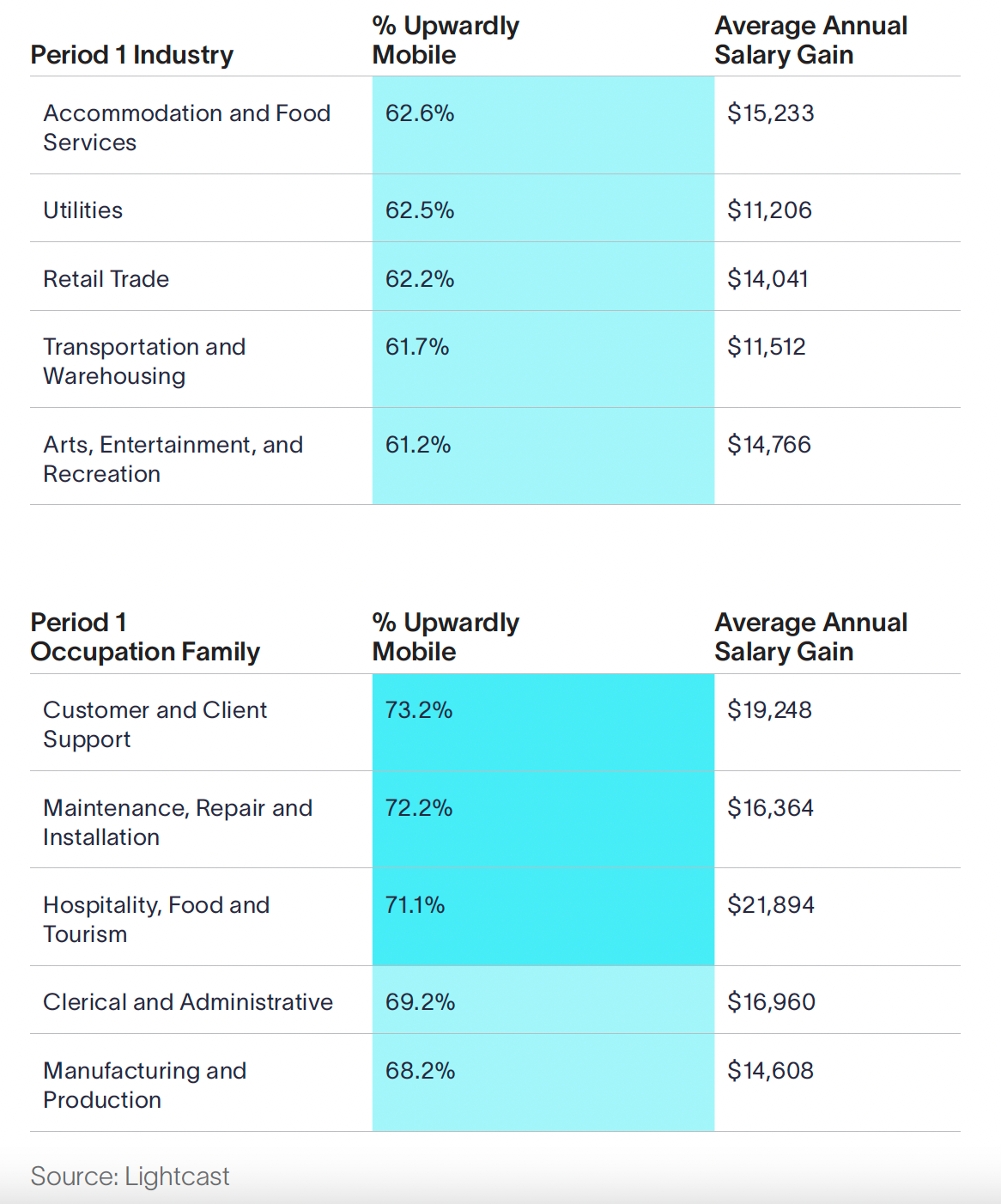
When looking for potential students, recruiters need to know what kinds of workers are most likely to want to pursue further education, and also those that are most likely to be successful in doing so. This industry and occupation data can serve as a first step.
At times, the demographic groups with the most to gain from returning to school are among the least likely to do so. For example, women are more likely to achieve upward mobility than men in majors related to history, engineering, and mathematics, but not very many women choose those majors—they’re chosen by 0.4%, 0.3%, and 0.2% of female adult learners, respectively.
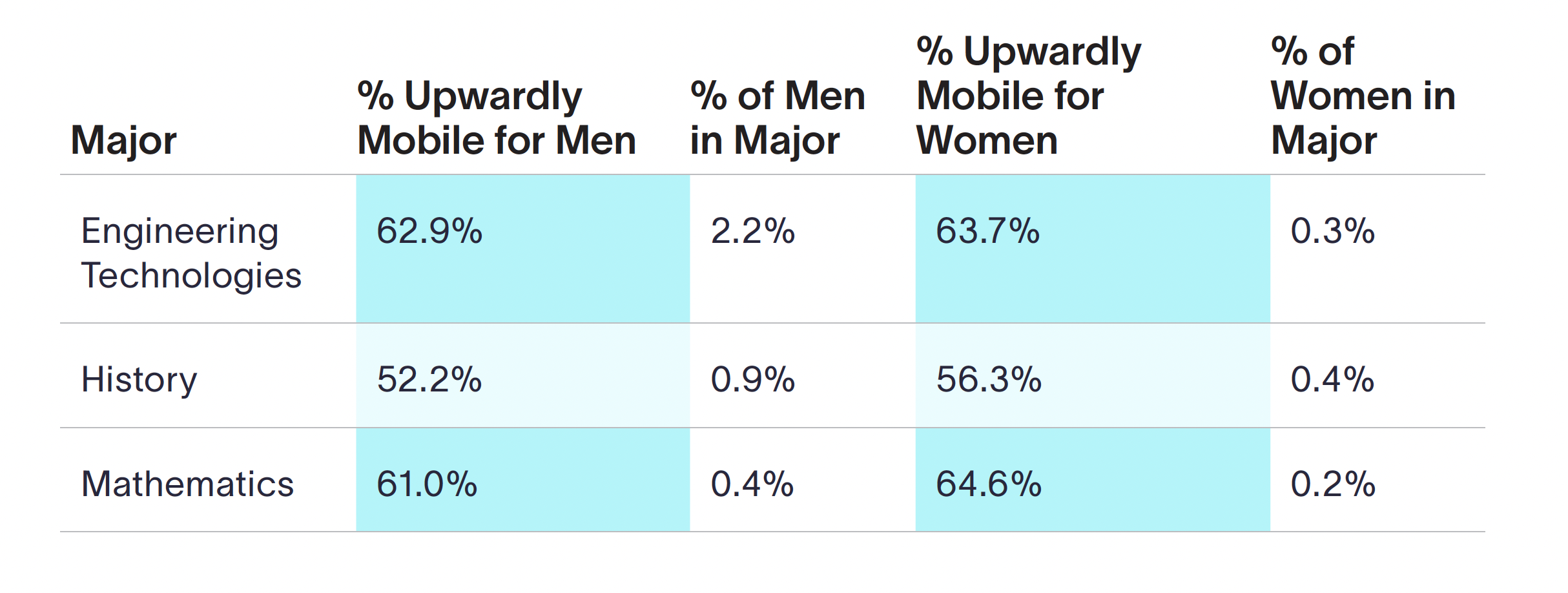
Likewise, Hispanic students are more likely than others to achieve mobility after pursuing majors in computer science or in healthcare.

So while adult learners as a whole are more likely to achieve upward mobility than their peers, these groups in these majors are especially likely to do so—it’s to their advantage to return to school. As they seek to find and enroll more adult learners, schools can point to these statistics to show how their programs can be used to create prosperity for a more diverse group of adult learners.
2. Know where to send them
Adult learners that pursue engineering degrees are the most likely to be upwardly mobile, according to our data, with an average salary gain of $18,916 annually. Many of the other top performing majors are in similar fields, like physical sciences and computer and information sciences. If a potential student is looking at an educational program through the lens of their financial return on their investment, then those majors should be their first consideration. But not every student will be up for difficult majors in engineering—which may be why only 5.1% of all adult learners choose to pursue them.
There are two conclusions to draw from this. First, those hoping to boost enrollment in engineering programs should keep an eye out for potential adult learners already working in adjacent technical fields, whose background would provide an advantage during their studies. By seeking out students likely to succeed, higher education institutions can increase the number of upwardly-mobile individuals they produce, to the benefit of both the schools and their communities.
Second, institutions can use data to help guide every kind of student toward programs and degrees that align with both their background, their career goals, and their likelihood of achieving upward mobility.
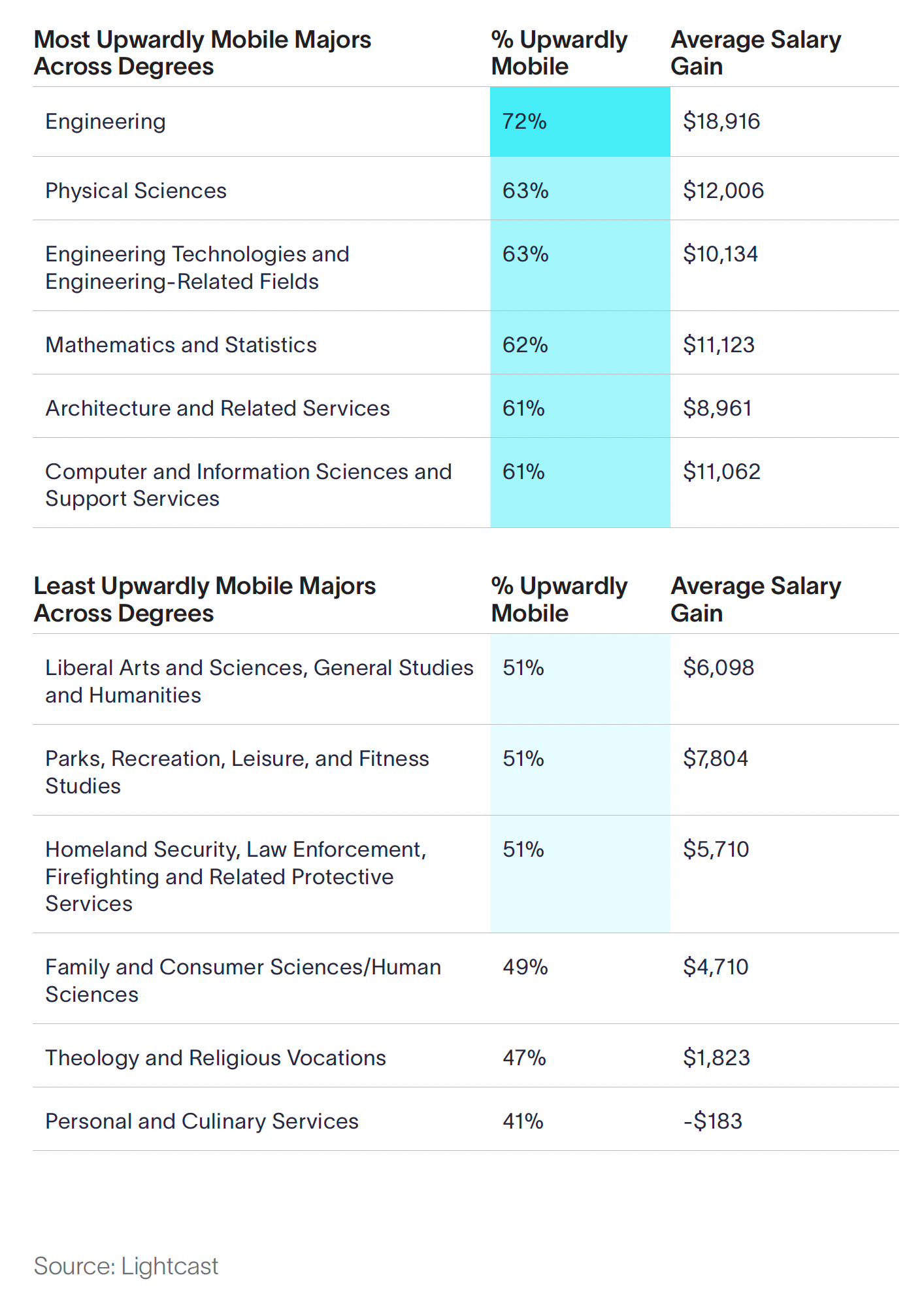
And while many of those those pursuing majors on the lower end of the scale, like law enforcement and theological training, aren’t motivated by potential economic prosperity, having access to this historic data can help every potential student make an informed choice about what they choose to pursue.
3. Understand what you’re offering
Among all these differences and variances in demographics, background, and major, one thing remains consistent: returning to school is a reliable and profitable investment for adult learners. Across the board, their average salary growth is 140% greater than salary increases for those who don’t go back to school, with an average annual boost of over $15,000. And as we’ve seen, those numbers can be even higher for students in certain majors or coming from certain backgrounds.
Since the pool of potential students is so large, educational institutions hoping to increase their enrollment can’t afford to ignore adult learners. But returning to school has enormous potential for adult learners themselves, and the data show that doing so is a sound investment. With that background in mind, all that remains for marketers and recruiters to do is make the case by connecting the dots.
The Moving Up and Moving Forward: Advancing Mobility for Adult Learners report is available for free download below:
About Lightcast
Formerly Emsi Burning Glass, Lightcast finds purpose in sharing the insights that build communities, educators and companies, and we take pride in knowing our work helps others find fulfillment, too.
We bring clarity to the labor market, guiding our customers through a complex and changing world and giving them the competitive advantage they demand. Our expertise provides the lens to connect the right people with the right roles (and training) in the right places.
We believe data isn’t just numbers — each data point represents real people and real opportunities for growth. Our solutions not only progress companies, educators, and communities but also individuals in their careers.
